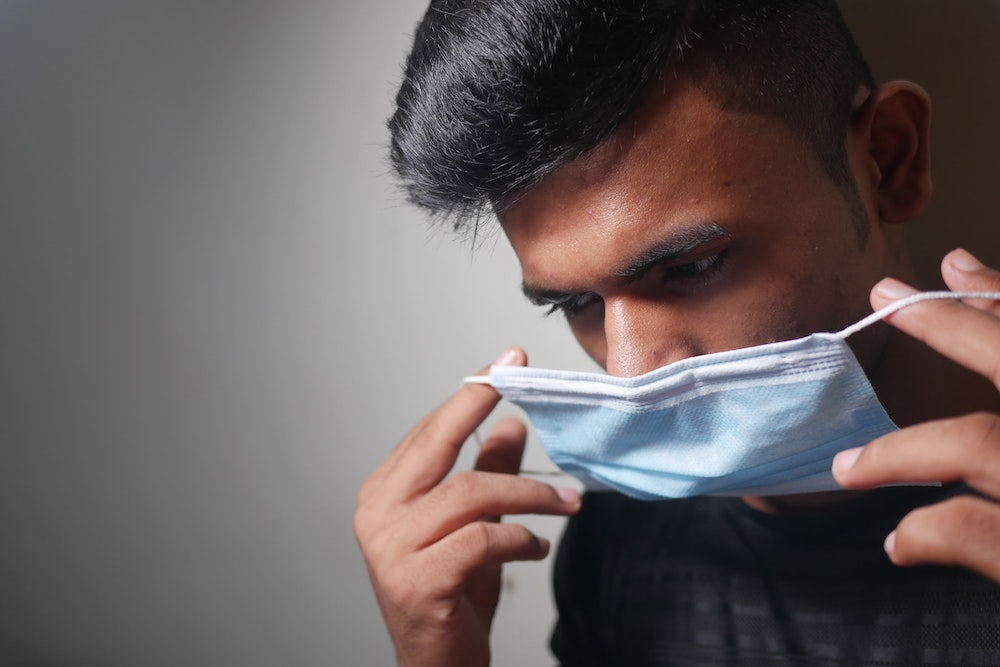When you see a new spot on your skin or start to feel a tickle in your throat, you may wonder if these are signs of a health issue. Maybe you’ve been bitten by an insect or you’re getting a cold. When you worry and stress excessively over developing a serious illness, you may have a condition known as health anxiety. During COVID-19, your anxiety about your health may have grown even more concerning.
What is Health Anxiety?
When you are preoccupied with the belief that you may have or are in danger of developing a serious illness, you might be diagnosed with health anxiety. You may be unable to function or enjoy life as others do, because you constantly fear becoming ill.
An individual with health anxiety will become obsessed with monitoring their heart and breathing rates. They will notice and stress over minor physical abnormalities such as skin blemishes and worry over the slightest headache or stomachache. Health anxiety results from misinterpreting normal bodily sensations as being dangerous and threatening.
Very Real Symptoms
Someone with health anxiety can experience real physical symptoms. They can have a stomachache, rapid heartbeat, dizziness, jitteriness, chest pressure, and other symptoms that may arise from their anxiety rather than from an issue with their physical health. However, when they experience these symptoms, they are even more convinced that something is seriously wrong with them, physically.
Looking for Symptoms
If you have health anxiety, you may convince yourself that you have valid reasons for your concerns. For example, you may have heard a news story about an illness that is spreading in another country and think that it will certainly come to the US, just as the COVID-19 virus did. You may also have a family member who had cancer or another serious disease and become convinced that you are also destined to get it.
When you start thinking about your family history or even news from halfway around the world, you start paying even more attention to your own body for symptoms. When you look for these symptoms, you will notice even the subtlest of sensations that you would otherwise just ignore.
Seeking Reassurance
People with health anxiety will find that they are in a vicious cycle when it comes to seeking reassurance from a medical professional. They will insist on multiple medical tests and may even visit the emergency room or urgent care center frequently because they believe they have contracted a serious illness. However, when the healthcare provider is unable to find a physical cause for the symptoms, this creates even more anxiety.
Health Anxiety During COVID-19
The pandemic has had a psychological effect on many individuals, especially those with a pre-existing health anxiety. The impact of the virus on physical and mental health across the globe may not be known for a while, but if you have health anxiety you know the impact COVID-19 is having on you now. During this uncertain time, you probably have even more anxiety about becoming infected. You may also worry excessively about the possibility of spreading the virus to other people.
Part of the increase in anxiety during the pandemic is the proliferation of news about the virus, its changing variants, the symptoms, and the transmission rate. These news items can make your anxiety much worse.
Steps to Help Ease Anxiety
It’s a good idea to limit your exposure to these news reports, particularly if they are not from trusted sources. The World Health Organization (WHO) and the CDC are probably the most reliable, scientific sources of health information during the pandemic and during “normal” times.
You can also take steps to ease your anxiety by following healthy daily routines. Go outside, get some fresh air, and get some exercise. You can safely walk on open pathways as well as stretch or practice yoga to keep your body in good physical health. Mindfulness and meditation are also beneficial for your mental health.
Mental Health Treatment for Men at PACE
If you are experiencing health anxiety, you can reach out to the professionals at PACE Recovery for help. We optimize your recovery success with integrated treatment that will address both your mental health and any substance use issues you may also have developed as a result of your anxiety. We address your whole person, including your spiritual, medical, psychosocial, and relational facets.
At PACE, we understand the challenges you are facing during this period of isolation and uncertainty. We’re here to help. Our men’s-only programming has transformed hundreds of lives over the years, and we believe that you can recover. To learn more about our mental health and addiction services, contact our Admissions team.



